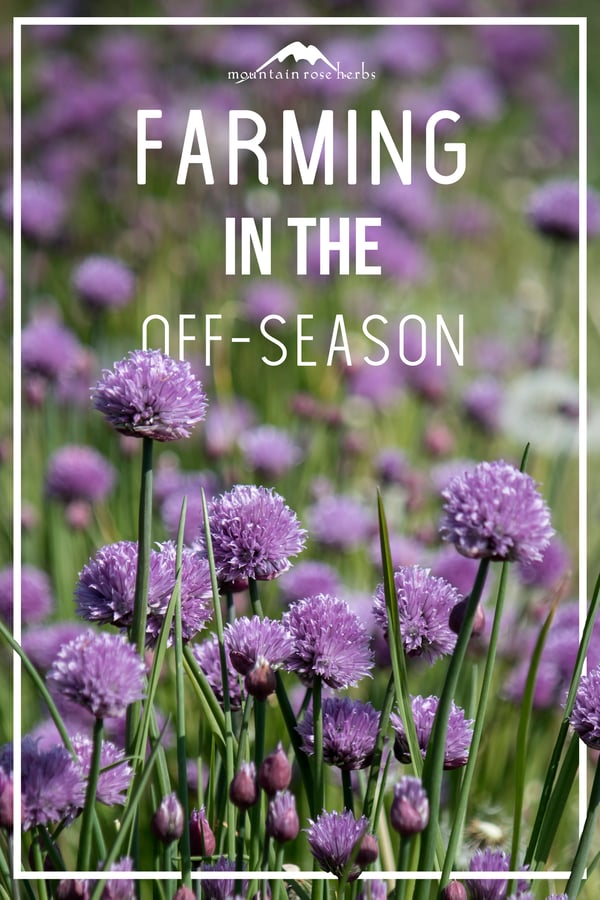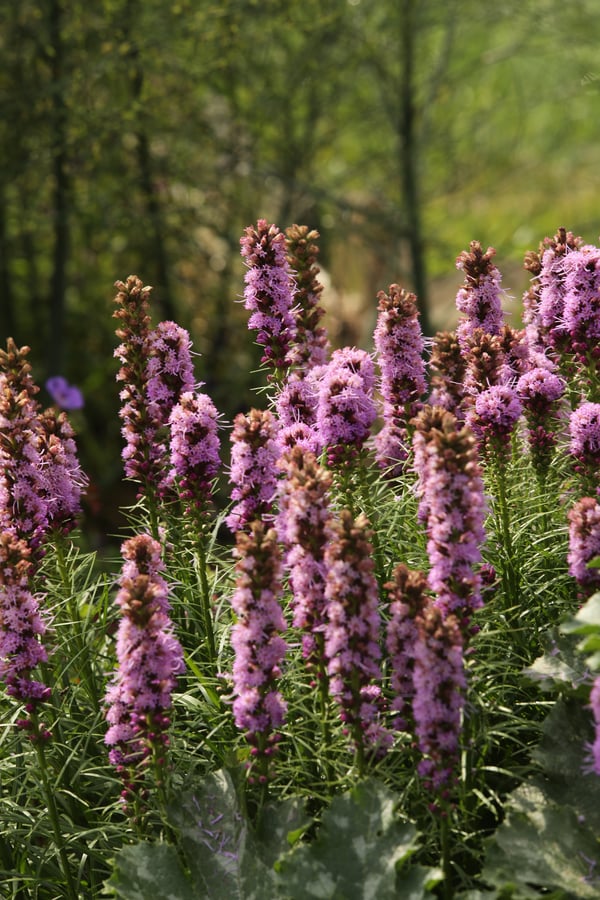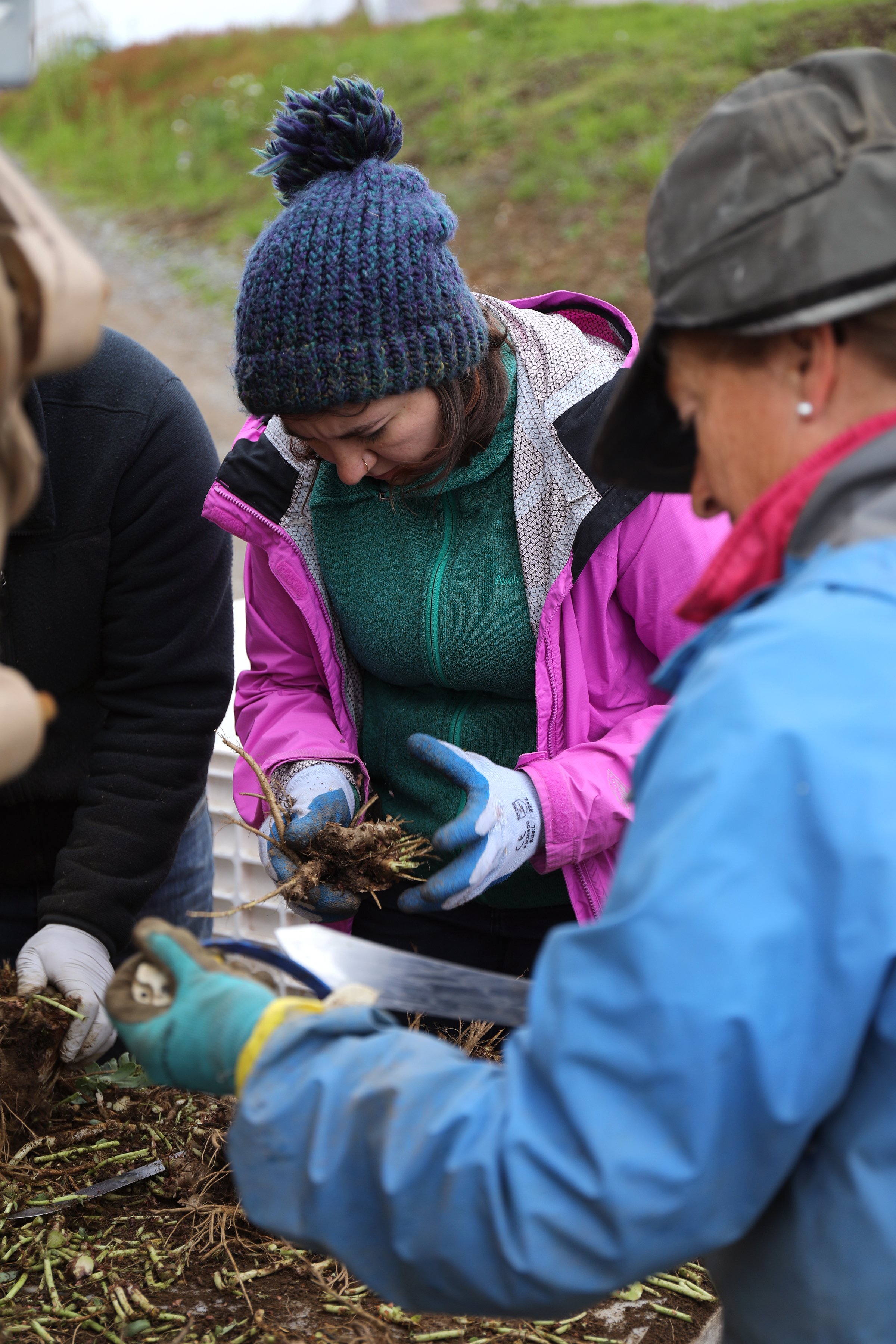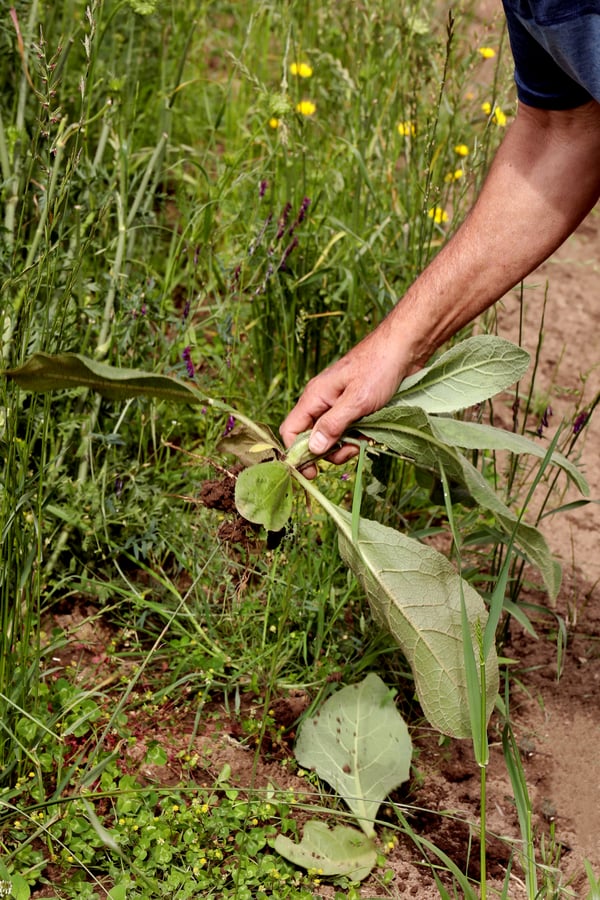There’s no denying the enchanting lure of harvest time. The plants soak up long stretches of sunlight and integrate the photons via complex biological mechanisms into helpful and radiant biomass, until that splendid moment in which they are gathered and thoughtfully prepared for your cabinet.
We at Mountain Rose Herbs love this time of year as much as anyone, but we also recognize that there is a substantial amount of work that goes largely unseen and undiscussed in preparation for successful harvests year after year. Our farm partners are working diligently all year round. This is by no means an exhaustive list, but here are just a few of the things that farmers must consider when the plants are dormant for the winter. We hope that the next time you interact with a farmer, you take a moment to thank them for what they do.Certification and Auditing
Rigorous and ongoing documentation of farming and production practices enables our partners to qualify for recertification as Organic, Fair Trade, Non-GMO, or many of the other impressive certifications that they boast. They also must meet FDA regulatory requirements for the products that they are supplying, which means they are subject to both 3rd party and internal auditing processes to ensure ongoing compliance.
Crop Planning and Projections
Our partners work hard to collaborate with us on our annual planting requirements and to balance that with practices that keep their soil healthy and fertile, such as crop rotation. They work with their customers to reflect on what went well over the past season and what could be improved for the approaching seasons, while keeping quality, and the financial and ecological sustainability of the operation in check. This requires continuous research into inputs (natural fertilizers and other soil amendments) and propagation strategies. Additionally, they must secure seed sources for the crops they are planning to cultivate, plan out maintenance of facilities and equipment, conduct surveillance of their land and facilitate acquisition when necessary.
Soil Preparation and Planting
To successfully farm in harmony with nature is to understand the soil and the vast microbial community within. Understanding this isn’t a straightforward process and requires a lot of continued on-farm observations and expert analysis of soil conditions, using a number of laboratory testing procedures. Once the results are taken into consideration and the soil is prepared for planting, seeds are either directly planted or previously grown starts are transferred to their new homes in the soil.
Education and Networking
Farms don’t exist in a vacuum. The regulatory, political, intellectual, and social landscape through which they must traverse changes nearly as often as the seasons. There is constantly new research being published, policy updates, and sweeping regulatory requirements to which they must adhere. Part of operating a successful farm is immersing yourself in this landscape and fostering community with the people around you to be able to adapt year after year, just as the plants must.
Financial Planning
Just like any other business, and perhaps more so due to the unknown weather variable that affects crop yields, farms must adjust their financial strategies annually. Taking stock of current inventory (infrastructure and product) and doing all the necessary financial preparations for the year to come is just one part of the financial picture.
Labor Planning
Since organic agriculture favors approaches that utilize mechanical and physical solutions to problems, a lot of labor is required during the production season. One of the things that must be figured out annually is where that labor is going to come from, and what their requirements are. Farms are operating as businesses and must meet the needs of their employees, which typically includes wages, benefits, and housing.
Time Off
Just as important as working hard is setting aside time away from your job, as many of us know. Farming is one of the most psychologically taxing jobs out there, considering how many unknowns there are to deal with each year. It’s vitally important to the resilience of the spirit to do things for oneself outside of work, even if you love your job!
Want to learn more about our partner farms?
Check out From Farm to Bottle: The Story of Our Hops
You may also enjoy:
- Why Our Pacific Northwest Farms Grow Organic
- Organic Pepper Powders from a Southwestern Farming Dynasty
- Pioneering Organic Rhodiola Cultivation in Alaska














